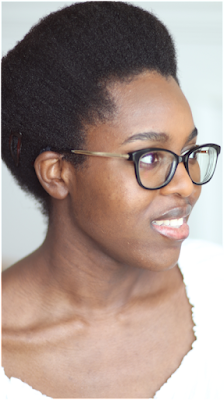Deleted Scenes - My Friend Alien by Hermione Laake
About the Author -
Hermione Laake is an awards-nominated writer with a BA in English Literature from Winchester and an MA in creative writing with distinction from KU. She is associate editor for: https://ojalart.com/masthead/ and is currently editing an experimental novella (THE MOTHERBOARD), originally a blog on https://hermionelaake.wordpress.com but now deleted, and has blogged extracts on Substack. Laake is writing her first novel for adults, and has written several novels for children published on Kindle. She has been a published author for ten years, a writer for 40 years, has supported and mentored writers, and has attended writers’ workshops and events since 2003. Hermione Lake also writes as Hermione Wilds.
Deleted Scenes -
I may be a little unusual because I tend to add scenes in rather than delete them. When I started writing children's books almost 4 decades ago the standard length of a children’s novel was 6,000 words. Now it is expected to be around 30,000. For adults 50,000 words or under is considered a novella or short story.
I don’t plan my books to be a certain length and I don’t have an agent pushing me to write to a specific page count. I recognise that discipline is essential when writing (you are supposed to ask yourself, does this move the story forward?) Sometimes I will cut out several sentences from exposition and change them into dialogue, but I think I would argue that it is a mistake to focus on length as a definition of excellence, or as a bar to strive for. A good book is a good book. Imagine if J. K. Rowling had let the word count restriction bother her. She, famously, extended it.
With MY FRIEND ALIEN I was writing it for a specific age and I wanted it to be able to be read at night by a busy parent. I wanted My Friend Alien to be a bite sized look at a situation and not a full length children’s novel. It’s a chapter book and naturally fits into that definition. These are also known as intermediate readers. Chapter books used to have around 6 chapters and they don’t tend to have illustrations. I am thinking of Anne Fine’s Only A Show, or The Finger Eater, Dick King-Smith. That sort of book; something to be read aloud at bedtime. A book to imbed and increase your fluency in English and be fun at the same time; not too complex. Darren Shan used to write them. Cirque du Freak was a memorable one. I spent hours reading chapter books and novels when I was writing for children and that definitely influenced the way I crafted my own children’s books. I make a point of continuing to read children’s books. Although that was easier when it was a daily routine. I read children’s books every night to my children for around twenty years and I definitely think that influenced me as a writer with regard to the shape and fluency of my writing.
How hard is it to cut out scenes?
Last year, I read at least 2 works of adult fiction (novels), by well known writers, which should have been much shorter. I could literally feel where they should have ended and I felt annoyed because I was sure they were padded out to be a certain expected length. I am not going to expose the writers because it isn’t the done thing, but I do think you know when your novel is over and you should have the courage to say no to the industry when it is inflexible or negative towards creativity with regard to the length, particularly for adults, which I have been focused on the past 3 years and this has to evolve. I used to print out my novels and cut them up into paragraphs and move them around until they flowed. I write much slower now and my novels evolve more easily and need less cutting.
I have been told I have exceptional visual perception so maybe that is why I am so opinionated about word count and in opposition to rigidity with regard to adult fiction and length. You know when you have told your story. Two recent books where I felt the authors got this balance right were Deborah Levy’s The Man Who Saw Everything, and John Green’s The Fault in Our Stars. Ernest Hemingway was the master of being concise, probably because he crafted paragraphs. He described how he used to write one paragraph at a time.
Anne Fine and Roald Dahl were very good children’s storytellers; writers that told the story and then got the hell out. Can I say that? I think there should be more emphasis on good paragraphs, especially now that we are reading books on our phones where we are much more focused on reading a couple of paragraphs at a time.
Where can people connect with you?
My Amazon page:
Goodreads author:
https://www.goodreads.com/author/show/7010663.Hermione_Laake
Free published Flash Fiction:
My 2 minute voice readings and interpretations of other writers’ work:
Twitter:
@herziloph


.jpg)

Comments
Post a Comment